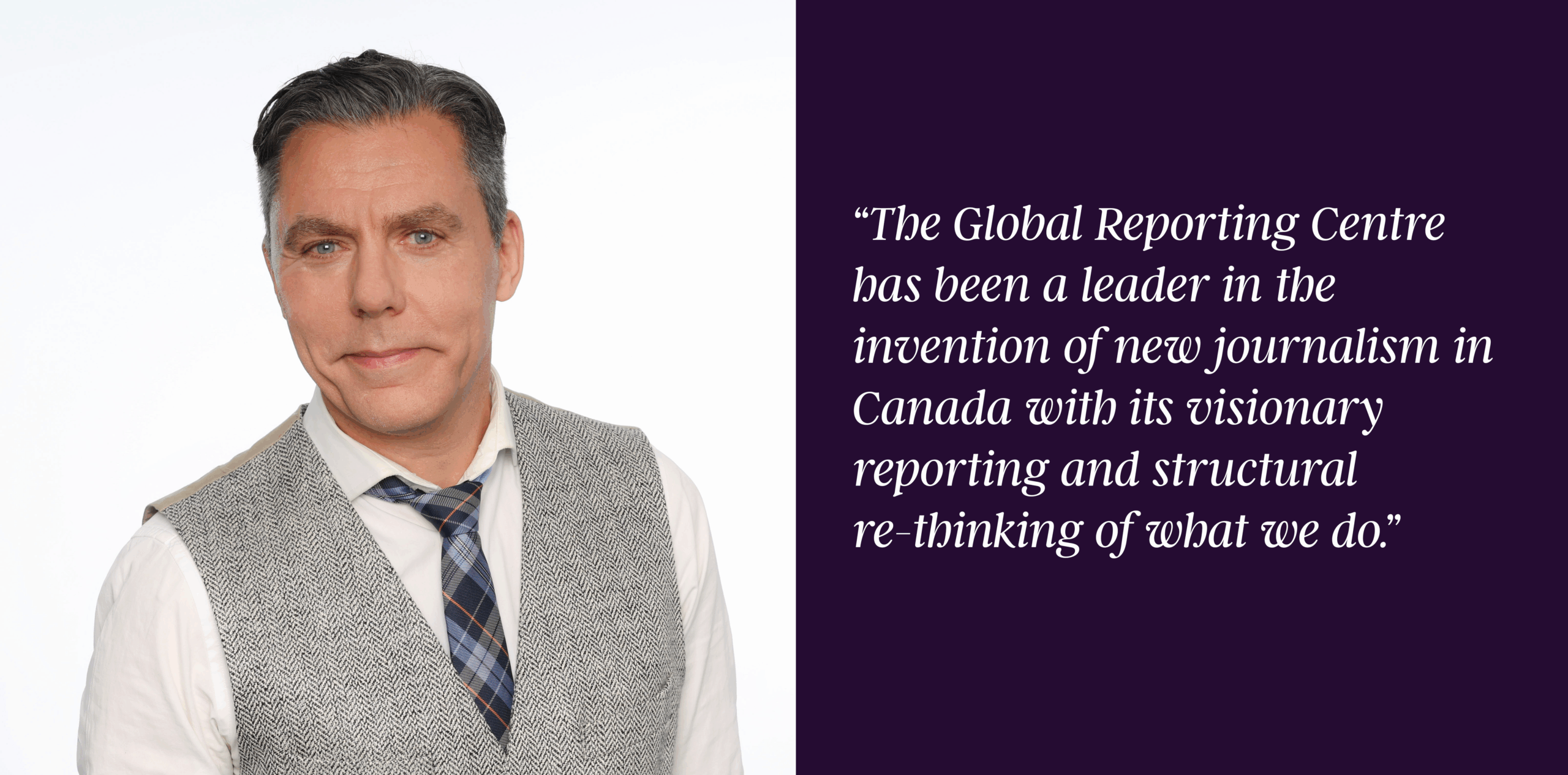There has never been a time when mistruths have been designed to enter our minds so easily and take root so deeply.
The global machinery feeding us a constant diet of disinformation has hollowed out the once-cherished marketplace of ideas. We have traded a shared, credible foundation of facts for fragmentation, algorithmic targeting, and “alternative truths” that persuade through volume and repetition.
It’s the kind of moment journalism was built for.
The fourth estate exists to explore the grey areas, illuminate nuance, challenge power, provide evidence-based scrutiny, and expose lies for what they are.
Yet this is also the moment when journalism’s influence has reached unprecedented lows. Newsrooms have been gutted, budgets slashed, and audiences scattered. The notion of a robust journalistic counter-narrative capable of combating the Goliath of manufactured polarization is fanciful.
Those of us who still do believe that thoughtful, contextualized and fair reporting remains foundational to our ability to understand the world around us are in a tough spot. We can surrender to clickbait storytelling that provokes rather than informs. We can walk away altogether. Or we can find new ways to produce the kind of journalism our communities, our friends and families, and our country need.
The Global Reporting Centre has been a leader in the invention of new journalism in Canada with its visionary reporting and structural re-thinking of what we do.
My first encounter with the GRC was transformative. As a long-time investigative reporter used to working alone—competing fiercely for stories and embracing a lone-wolf mindset—I found myself in a room with academics, researchers, and journalists openly discussing shared interests and urgent stories that demanded attention.
The GRC became a kind of matchmaker, connecting senior journalists with academic experts, helping to fund their work, and cultivating collaborations that would never have been possible within traditional newsroom structures.
At that first meeting, I met distinguished academic Genevieve LeBaron, a leading authority on the exploitation of vulnerable workers worldwide. With GRC support, we launched an ambitious collaboration on labour abuses in the global garment industry. Her team surveyed 1,200 workers in Ethiopia, India, Honduras, and Myanmar—research far beyond the capacity of any contemporary newsroom. Working alongside them, our reporting team interviewed many of those workers, examined corporate records, developed confidential sources, and pressed governments for accountability.
We published the results simultaneously to two very different audiences—academics and the general public—amplifying both the findings and their impact.
Unpaid wages. Abuse. Restrictions on bathroom breaks. Inside the worsening conditions of the garment factories that make the clothes in your closet

By Robert Cribb Staff Reporter, Kelly Bennett Global Reporting Centre, Emma Jarratt The pandemic triggered unprecedented levels of indebtedness and exploitative conditions in the garment industry.
It was a game changer. By setting aside ego, widening the tent, and pooling expertise, we showed what becomes possible when journalism embraces new models of inquiry.
Genevieve and I are now working on another GRC-funded project—soon to be published—that builds on the same model of deep collaboration between journalists and researchers in Canada. This kind of partnership would have been unimaginable two decades ago, but today it is helping to elevate public understanding of issues that matter.
The GRC has been instrumental in driving this innovation, which is rapidly expanding across the profession.
Journalism is reinventing itself in small but meaningful ways—through creative nonprofit structures, collaborative models, and alternative funding approaches. The fight for eye balls and ears remains overwhelmingly skewed in favour of the technology behemoths. But there is real power in the work being done by journalists who break down old silos, dig deeper, and reveal truths too important to ignore.
We need the GRC on our side. I hope you’ll consider supporting the vital work they do in the public interest.
Robert Cribb
Director, Investigative Journalism Bureau

